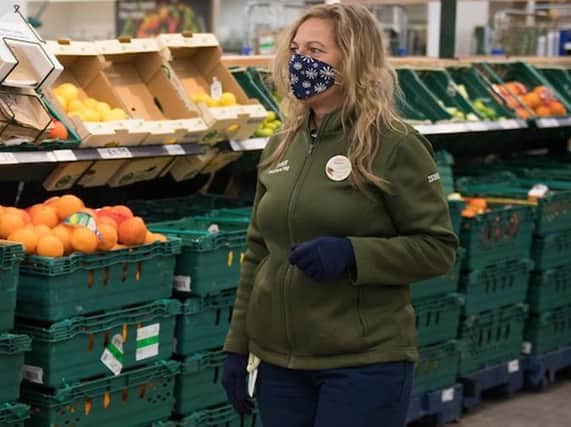Tesco’s rate relief decision proves a dilemma for rivals - Ros Snowdon


Real estate adviser Altus Group projected that the UK’s big four grocers and German rivals Aldi and Lidl would save around £1.87bn as a result of the rates holiday.
Tesco’s unexpected move puts the other big four supermarkets in a sticky position. Will Leeds-based Asda also hand back the estimated £297m it received from the Government and what will Bradford-based Morrisons do with its taxpayer funded £279m cash pile?
Advertisement
Hide AdAdvertisement
Hide AdMeanwhile Sainsbury’s isn’t looking great. Last month, it said it had received a break worth £230m for the six months to September in an update which also saw it reveal plans to axe 3,500 jobs.
Rates relief was first announced by the Chancellor for retail, leisure and hospitality firms until March 2021. However, Tesco came under fierce criticism when it declared an interim dividend of 3.2p plus a special dividend of 7.3p for shareholders.
Many people have been shocked by the actions of some retailers. Last month the founder of value retailer B&M Bargains, which has stayed open through the lockdowns, paid his offshore family trust £44m in dividends as it saved £38m through the rates holiday.
Tesco’s chairman John Allan said the board is “conscious of our responsibilities to society” and that the company did not need the cash as it remained open and traded strongly throughout the pandemic.
Advertisement
Hide AdAdvertisement
Hide AdRichard Hunter, head of markets at interactive investor, said: “Tesco provided a somewhat surprising announcement that it would be returning the £585m of business rates relief which it has received to date, despite incurring estimated Covid-19 related costs of £725m thus far.
“This action may also throw down the gauntlet to some of its blue chip rivals, resulting in some other companies potentially following suit.”
However, analyst Clive Black at Shore Capital takes a different approach, saying that Tesco has set a “dangerous precedent”.
Mr Black said the reason given by Tesco to repay the rate relief seems to relate to the fact that the group believes it has been able to keep its stores open when others have not and so it is simply the right thing to do.
Advertisement
Hide AdAdvertisement
Hide Ad“In this respect, we absolutely do not believe that this is doing the right thing by all of its stakeholders, notably shareholders, and we sense, as we have already heard a sense of: ‘What an earth are they doing?’ will be the main initial emotion,” said Mr Black.
“Indeed, doing the right thing is a phrase that may be considered a lot today, as where does it end, particularly if it is demonstrably not doing so for shareholders, who would seem to be a second class stakeholder for Tesco’s board.”
So, should the other big four firms (Sainsbury’s, Asda and Morrisons) follow suit?
Taxpayer cash should not be used to pay special dividends to shareholders. That is morally wrong.
Advertisement
Hide AdAdvertisement
Hide AdMany shareholders have had to wave goodbye to their dividends this year, but it strikes me that so they should. We all need to share the pain the pandemic will bring over the months and years to come.
Yes, many of us own shares in Tesco indirectly through our pensions, but a dividend freeze that lasts a year is not going to make any difference to our pension pots in the long term.
So, if a company like Tesco (which Mr Black notes is about to get a windfall from the sale of its Asian operation) can afford to hand the cash back then so it should.
It strikes me that each company should be looked at individually.
Advertisement
Hide AdAdvertisement
Hide AdWe need to see how the other big three have performed through the pandemic. If they also have so much cash that they’re intending to pay out a special dividend, of course they should repay the taxpayer.
However, if they are struggling, they should be allowed to keep part or all of it.
With an unknown Brexit outcome less than a month away they may need the cash to shield themselves, but if they don’t they should, like Tesco, do the right thing and pay it back.